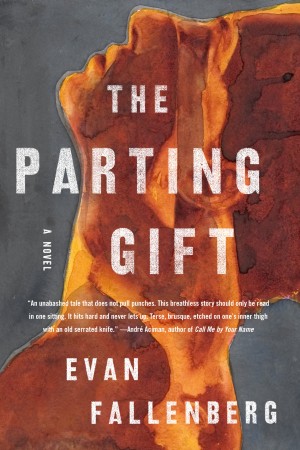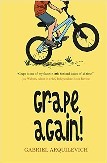In Holy Lands, Amanda Sthers portrays the members of the Rosenmerck family struggling to connect and accept each other while suffering from individual hardships. The story centers around Harry Rosenmerck, who has recently relocated from New York to Nazareth, Israel in order to raise pigs — leaving behind his separated wife, unsettled daughter, and estranged son. Insightfully told through a series of letters, emails, and handwritten notes, the novel demonstrates the physical as well as emotional distance between the family members. On his pig farm, Harry chooses to live in an isolated manner, without internet or phone. The challenges of staying in touch via letters aggregate the fraying bonds of this family.
While deeply moving, Holy Lands is also witty and humorous. Annabelle and David squabble as any siblings do — even in their transatlantic correspondences. The Rosenmercks’ dedication to and care for one another is coupled with often detached and even scathing words and actions. The novel lends a representative glance into what a family of four independent adults is like in a modern, globalized world.
In addition to writing to his family, Harry exchanges letters with Rabbi Moshe Cattan, with whom he has formed an unlikely friendship. Rabbi Moshe and Harry debate with and poke fun at each other — and even fundamentally disagree on what it means to be Jewish — and yet, they both cherish their friendship enough to continue their correspondence. Among the myriad of points of digression in their faith and philosophy, the fact that Harry is raising pigs in the Holy Land (even though the pigs are kept in a pen over the sea) is as the major source of contention. The warmth that exists between the two men despite their differences, however, is a nod towards acceptance and the ever-expanding definition of Jewish identity.
A particularly evocative aspect of the novel is Harry’s relationship with his son, David. Harry has not spoken to David since he came out as gay. Through David’s personal triumphs and success as a writer, there is a conspicuous gap in the exchange of letters between father and son. David never ceases to reach out to his father with updates, pictures, or pleas for reconnection. As Sthers slowly reveals Harry’s complicated feelings towards his son, she touches on a highly sensitive issue with grace and hard-to-swallow realism. Holy Lands conveys that family transcends dysfunction and complications: “You are my prisoners and I am yours. We are a family.”
Anastasia Shymanovich currently lives and works in New York City. She graduated UNCG with a BA in sociology.





